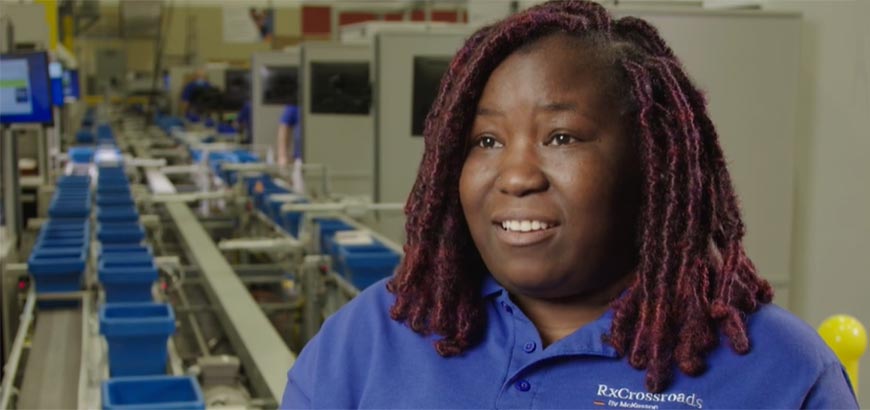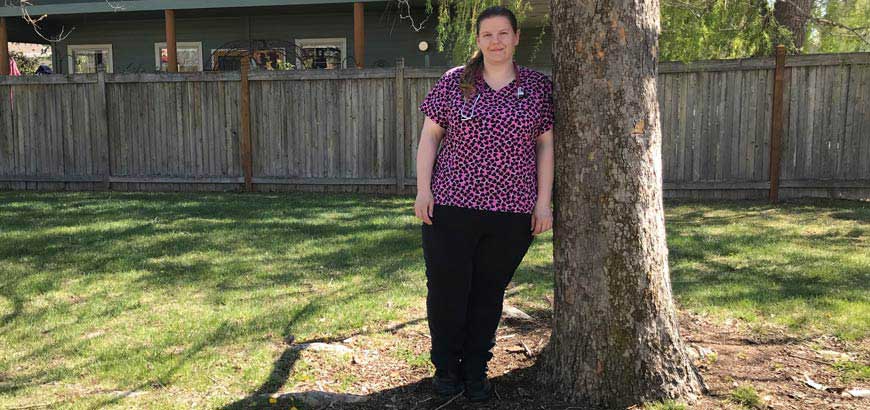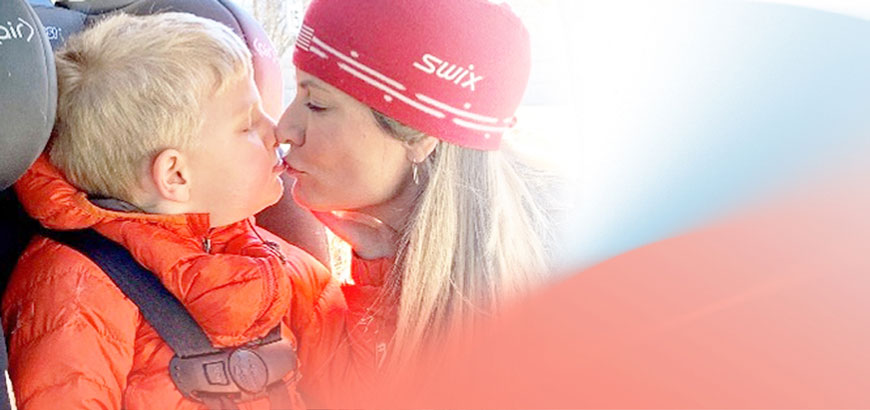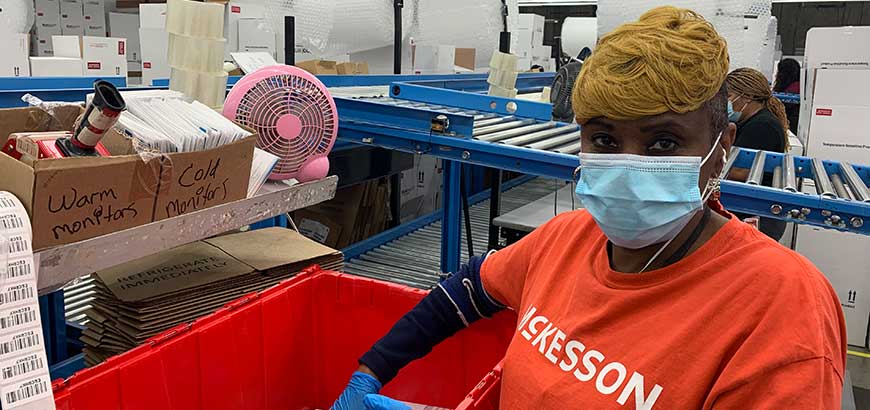Read time: 5 minutes
“You need to work with people.”
With those simple words from a friend and former colleague, Nikita Patton shifted from a career in laboratory chemistry to one where she could put her natural people skills to use – pharmacy.
After a few trial runs at retail and long-term care pharmacies, Nikita quickly learned that she did, in fact, love working with patients. She enrolled in Sullivan University’s accelerated Doctor of Pharmacy program, and, as she happily says, “The rest is history!"
While in pharmacy school, Nikita took particular interest in complex diseases such as cancer, multiple sclerosis and diabetes, as well as in rare diseases, for which there are often only one or two available medications. Many of the specialty regimens used to treat these conditions, she explains, are complex as well. Consequently, patients need to work with a pharmacist who has both the expertise required to help patients take their medications as prescribed, as well as the empathy to help them through the challenges of their healthcare journeys.
Today, she’s putting her specialty care knowledge and her personal touch into practice as a pharmacist at McKesson’s program pharmacy in Louisville, Ky. Unlike roles in traditional retail pharmacies, the work of these pharmacists takes place in one of two distribution centers (DCs) – the one in Kentucky, and another in Texas – each of which serves a nationwide patient population. Each year, McKesson’s program pharmacy DCs dispense and deliver more than 2 million prescriptions directly to patients – all at no cost to those patients.
The program pharmacy’s ultimate goal, Nikita says, is to break down affordability barriers that can prevent patients from obtaining their medications. That work happens through patient assistance programs (PAPs) and other free goods distribution models, which are sponsored by biopharmaceutical companies that help patients who are uninsured, are underinsured, or face coverage gaps for costly medications.
That’s why Nikita’s work is so rewarding. For patients dealing with cancer or other complex and rare diseases, McKesson’s program pharmacy is often their last stop on an exhausting journey to get on life-changing medications. This is especially true for patients with conditions so rare that insurance won’t cover the medication they need. For them, she says, the specialty medication they need can sometimes be the only medication that works.
“They’ve gone from doctor to doctor and program to program,” she says. “I get a lot of patients who are so excited and relieved to finally get their medications that they cry on the phone. When I can bring joy to a patient by saying, ‘We’ve got you, you don’t have to worry anymore’ – that’s a remarkable feeling.”
Nikita is especially passionate about medication safety – the right dose, the right quantity, the right combinations to prevent unwanted interactions and the right way to store medications for safety and efficacy. That passion comes in handy now that she spends her days answering patients’ questions. Sometimes patients accidentally freeze their medicine. Many ask for advice on how to proceed after a missed dose. Others ask about side effects and interactions.
“In pharmacy school, our professor taught us fun songs and hand signals about specialty drugs and how they work,” she recalls. “It helped me remember the clinical information, and now it helps me break hard-to-follow information down so it’s easier to share with patients – and it helps ease some of their anxiety in the process.”
Indeed, Nikita finds joy in her interactions with patients.
“Our primary job may be to help with medications to minimize infection or treat disease,” she says, “but these patients are going through a lot, and we’re also in the business of helping lift the burden off their shoulders when they need it most. If I can shine a little light in my patients’ lives, maybe they can light someone else’s life.”
For one of those patients, that someone was her own son. A few months ago, Nikita spoke with a mother whose rheumatoid arthritis pain had become so severe that she could barely walk. Unable to manage her condition and minimize her pain due to complications processing her prescription order, she had all but resigned herself to missing her son’s graduation.
Nikita quickly got on the phone with the patient’s prescribing physician to clarify the information needed to process the order and expedited the medication directly to the patient’s home.
“She was so grateful that with her medication, she could walk more easily and be there to see her son get his diploma,” she says. “That’s the best part of my job – knowing my work is helping patients live their lives. We may not be an in-person brick-and-mortar pharmacy, but we can still be there for our patients when they need us most. It’s my job to make their day great, but they truly touch my life as well.”
"When I can bring joy to a patient by saying, ‘We’ve got you, you don’t have to worry anymore’ – that’s a remarkable feeling.”
Nikita appreciates that same sense of caring she sees from others in her McKesson program pharmacy family – or, as they’ve affectionately dubbed themselves, the “pharmily.”
And, given her people-oriented nature, it’s no surprise that her love for making people smile transcends to her colleagues. Beyond her clinical role, she helps build strong team bonds as an employee activities chairperson. She’s hosted brunches, painting nights, and even a pop-up carnival complete with food, a water balloon toss – and the opportunity to throw a pie in a supervisor’s face.
“We hang out after work, we call each other to make sure we’re OK, we have disagreements and we have fun,” says Nikita. “We come together to take the best care of our patients, but we also take the best care of each other. We love each other, we love helping patients, and we love being at McKesson."




Share
Post
Post
Email